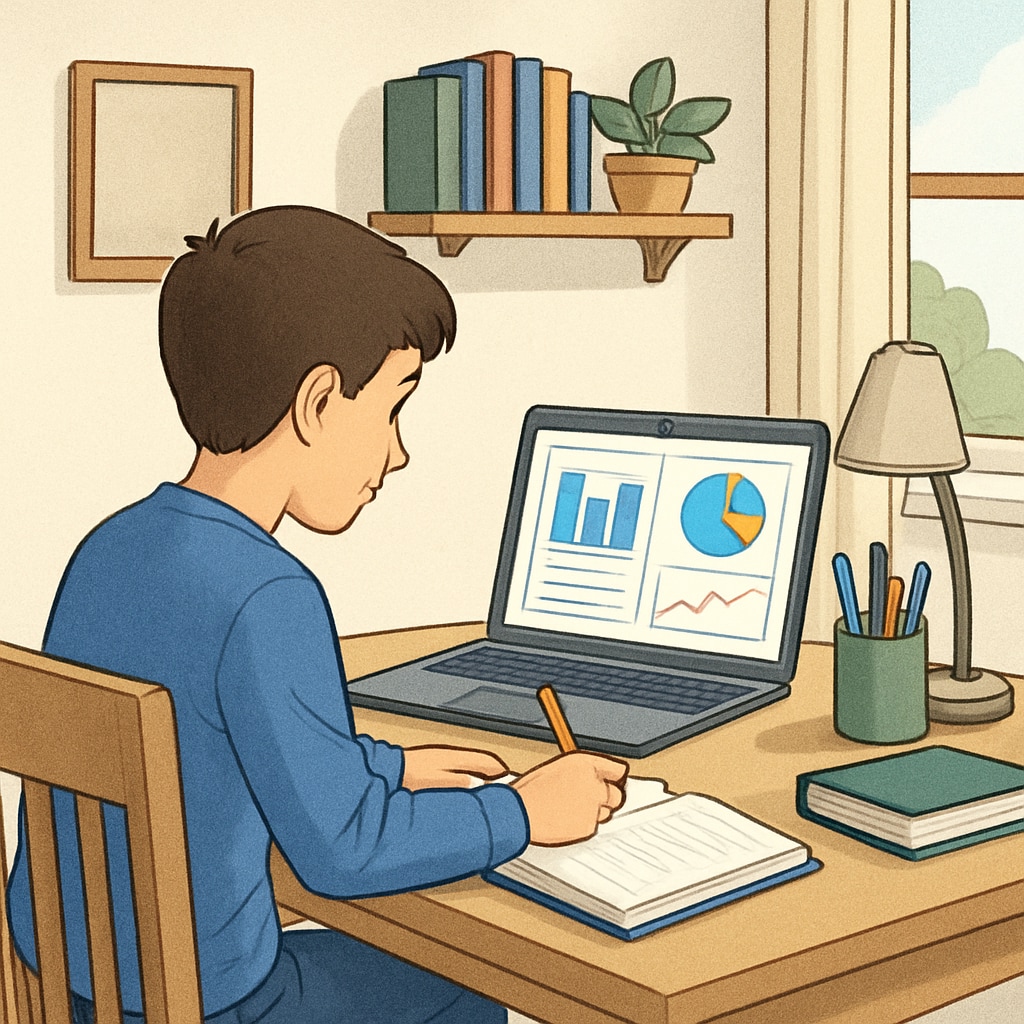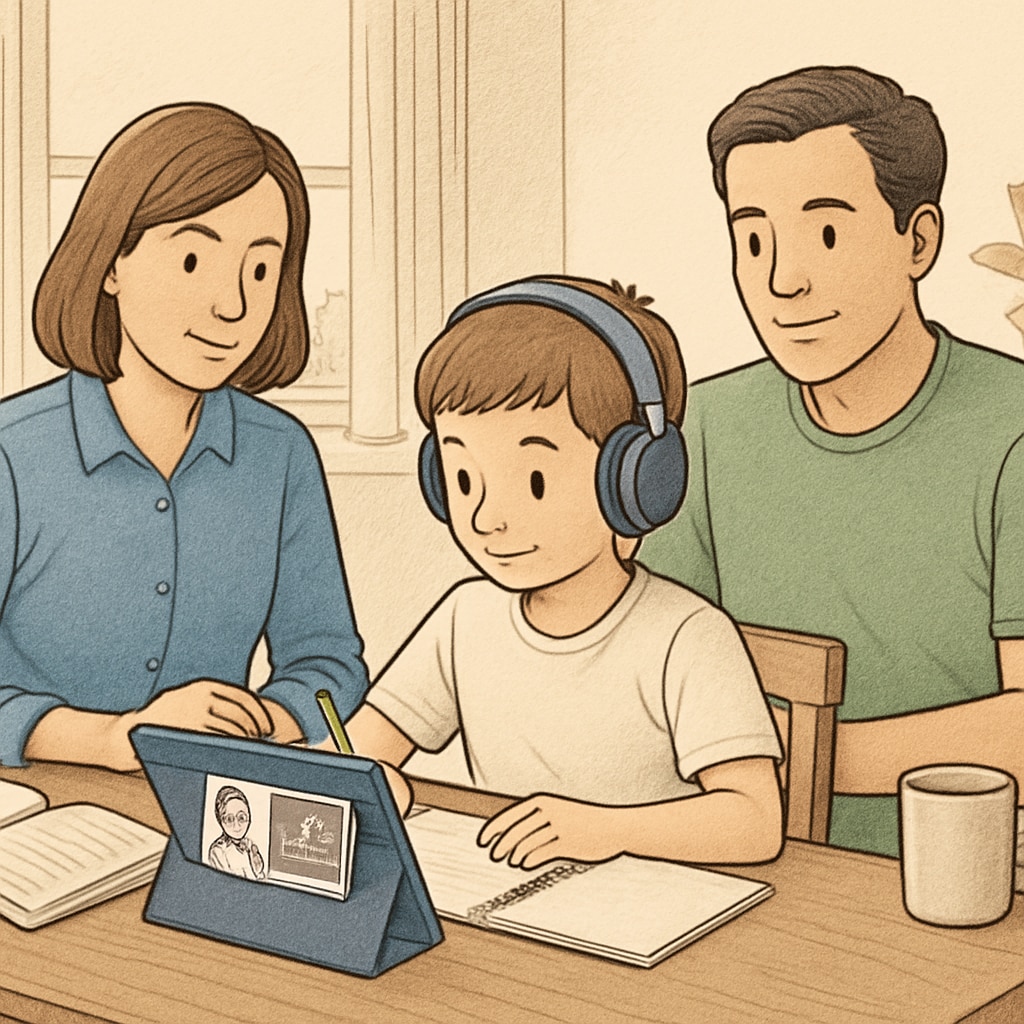In recent years, the concept of online public schools has gained significant traction. Parents’ choice to enroll their children in these programs reflects a shift in the way families perceive traditional education systems. From the desire for personalized learning experiences to the need for greater flexibility in family routines, the motivations behind this trend reveal the evolving priorities of modern parents. This article delves into the key reasons why online public education is becoming an increasingly popular choice for K12 students.
Personalized Learning: Meeting the Needs of Every Student
One of the primary reasons families are turning to online public education is its ability to offer a personalized learning experience. Unlike traditional classroom settings, online programs allow students to progress at their own pace, focusing more time on areas where they struggle and moving quickly through concepts they grasp easily. This individualized approach ensures that children can achieve their full potential without the added pressures of keeping up with or waiting for peers.
Additionally, online platforms often integrate adaptive learning technologies that tailor content to suit each student’s unique needs. For example, tools like intelligent tutoring systems provide immediate feedback, enabling students to correct mistakes and refine their understanding in real time. This kind of customization is particularly beneficial for students with learning disabilities, advanced learners, or those pursuing extracurricular passions that require a more flexible schedule.

Flexibility: Adapting to Modern Family Lifestyles
Another significant factor influencing parents’ decision is the flexibility that online public education offers. Modern families often juggle multiple responsibilities, including work commitments, caregiving, and other personal obligations. Online schooling allows families to design a learning schedule that fits seamlessly into their daily lives, reducing stress and allowing for a better work-life balance.
For families who travel frequently or live in remote areas, online education eliminates the need to compromise on the quality of education. It ensures continuity regardless of geographic location. Moreover, parents who work from home find it easier to supervise and engage in their children’s learning, fostering a stronger parent-child connection.

Safety, Accessibility, and Cost-Effectiveness
The COVID-19 pandemic highlighted the importance of health and safety in educational environments. Many parents continue to value the safety of learning from home, especially for children with underlying health conditions. Online public schools provide a structured yet secure learning environment, reducing exposure to potential health risks.
Accessibility is another major advantage. Students with physical disabilities or those living in underserved communities can access high-quality education without the barriers of transportation or inadequate local resources. Since online public schools are funded similarly to traditional public schools, they often come at little to no cost for families, making them a financially viable option compared to private or charter alternatives.
Furthermore, online education encourages the development of digital skills—a critical competency in today’s technology-driven world. Students become proficient in using digital tools, managing virtual communication, and navigating online platforms, which prepares them for future academic and professional success.
Challenges and Considerations
While online public education offers numerous benefits, it is not without its challenges. Maintaining student engagement in a virtual environment can be difficult, requiring parents and educators to work collaboratively to provide structure and motivation. Socialization is another concern for families, as students may have fewer opportunities to interact with peers face-to-face. However, many online schools address this by organizing virtual clubs, extracurricular activities, and occasional in-person events.
Additionally, parents often play a more active role in their child’s education when opting for online learning. For some, this increased involvement is a positive aspect, while for others, it may pose a challenge due to time constraints or lack of familiarity with educational content.
The Future of Education: A Hybrid Approach?
As we look ahead, the continued growth of online public education suggests that a hybrid model may become the norm. Combining the best aspects of traditional classroom instruction with the flexibility and personalization of online learning could create a more inclusive and effective educational system. For example, schools might adopt blended learning models, where students attend in-person classes for hands-on activities and rely on digital platforms for theoretical instruction.
Ultimately, the rise of online public education reflects a broader shift in societal values. Parents are prioritizing educational choices that align with their children’s unique needs and their family’s lifestyle, signaling a move toward a more flexible and student-centric approach to learning.
Readability guidance: This article uses concise paragraphs, active voice, and transitional phrases to enhance readability. Key points are summarized in lists, and long sentences are minimized to maintain clarity.


